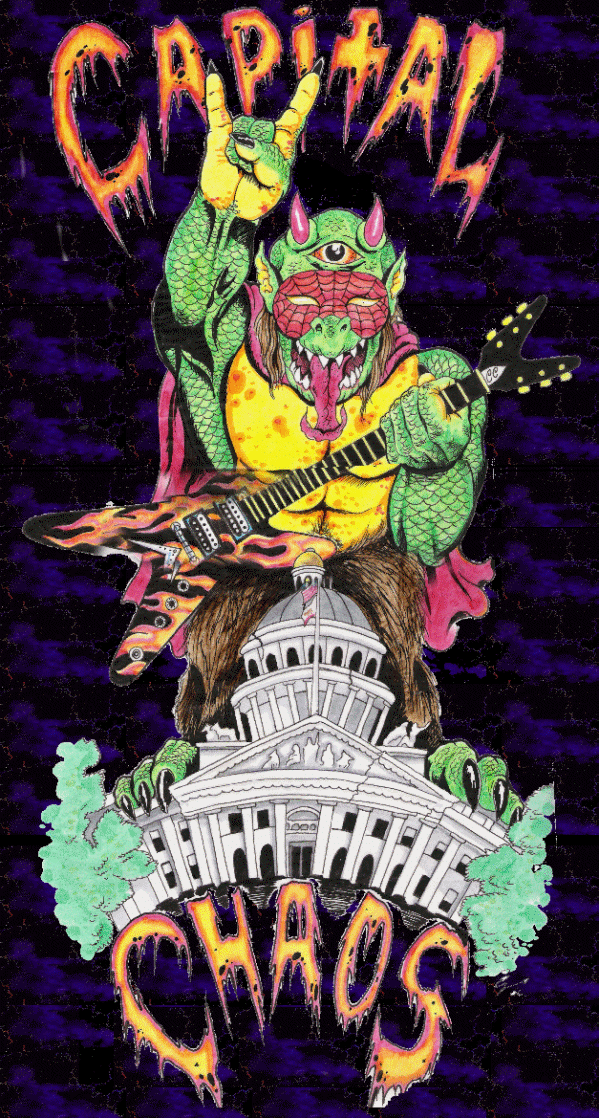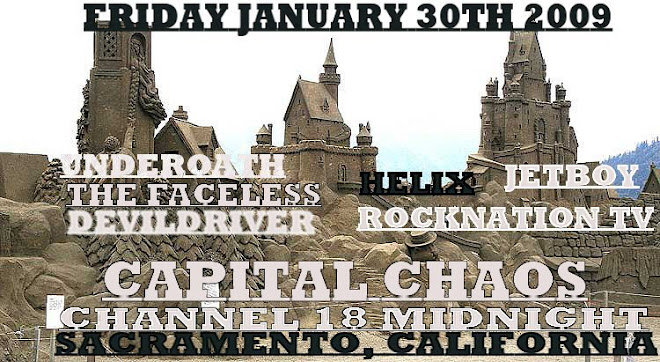
At the same time, I think it’s pretty cool that all these people are able to put out quality music with cheap recording technology and the internet to spread it around.
Oh yeah, absolutely. That’s sort of one of the revolutions that half the people would say is destroying the recording industry, and half the people would say is reviving it. Because you can do what I do, which is bypass the need for advances on records because we recorded our album for free. It cost us nothing. I just did it in my apartment. Hey, anyone can do that if they put the time into it. 20 years ago that would have been impossible. If you wanted a pro-sounding recording, you had to turn out some real cash. We’re talking like 100-200 grand, and you have to use your album as collateral so owning your masters was out of the question as well. It’s just that all of this is affecting the industry in ways that we can’t even predict because of the ripples that it causes. It really opened up new kinds of deals that you can do. It allowed us to sign the kind of deal that we signed. We’re signed to 5 labels.
What kind of deal is that? Do you guys own your masters?
Yeah, we do.
That’s great.
We have a licensing deal. We basically license our album out to labels, and it’s based on territories. So we’re signed to Sumerian in the States, Distort in Canada, Roadrunner in Australia, Roadrunner in the UK and Europe, and Roadrunner in Japan – which are all separate but equal entities that have the same resources of Roadrunner. It’s really cool because we have all these territories that are pulling for us separately rather than having one label that’s based out of our area that happens to have offices in other areas or whatever or not even have offices but distribution in other areas. For example if we were on Sumerian, there might not be so much of a push to get us out of the country because we sell a ton of albums in the States and not so much in the rest of the world. However, now that we’re signed with Roadrunner Australia, they’re pulling for us now that the album is out to come there immediately. That’s why we have an Australian tour so fast. Hopefully that will continue to happen.
Yeah, that’s excellent, man. Do you see the industry going that way with bands keeping their masters, doing things on the cheap, and licensing . . .
Yeah, because the thing is that it used to be that you needed to take out a huge loan. Labels, for all intents and purposes other than having a lot of cred and marketing tools, they’re really just banks. The banks are willing to give you a loan, but your equity is really just your talent. They would give you these huge, big deals. Let’s say they’ll do a million dollar deal or whatever; they’ve got to get something back, so that would be the masters. That’s how they would get their money back is through the masters, and they would own your material. If you try to get $100,000 from a bank as a musician working at RadioShack the bank will laugh at you. So you get this one person who would actually be willing to invest in you at the cost of your material. Now that CDs don’t cost that much to make, you can go to a studio and get an album made for (even if you go to a really nice one) you can get it made for under 20 grand. Those are the kinds of loans that are accessible to people through banks. So now the necessity for a label in the old fashioned sense isn’t really the same. You can get away without needing them so you have more clout when you’re negotiating with a label now. You can say “well, I don’t really need that money.” In my case it was like “look, you guys aren’t risking anything, and I’m basically delivering a completed album to you which is going to cost you nothing.” It became very easy to make the case for why I should own my masters.
In the past it would be like “well we should own it because we’re giving you 100 grand.” Now it’s like “well don’t give me anything, and I’ll own my music.” So you can work out different deals these days. Obviously this isn’t for everyone, and Sumerian is also a very forward-thinking label. They’re very new school because a lot of old school labels would be like “fuck no. There’s no way you can do that.” It’s just the way things are changing, and it is very unpredictable. That is both a good and bad thing because: it’s bad because you don’t know what your career is going to look like, but it’s a great time for experimentation. It’s a great time to try these new kinds of deals, and that’s exactly what we did. We’re like “well, this sort of makes sense on paper. Let’s see if we can pull it off.”
Forward-thinking musicians like Mansoor are the types of people that keep music quality good while the industry is struggling to stay a float. As solid as Periphery’s music is, their business model is even better. There’s an old model and a new model, and Mansoor, like the No Label Needed contest, are proving that there are ways to get things done outside of the big label system.




No comments:
Post a Comment